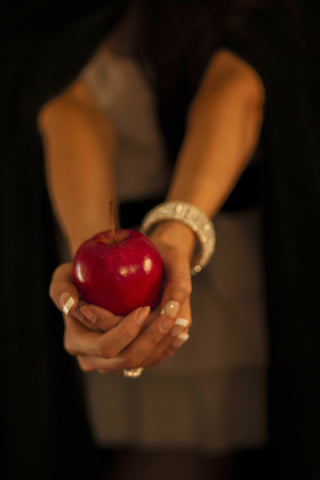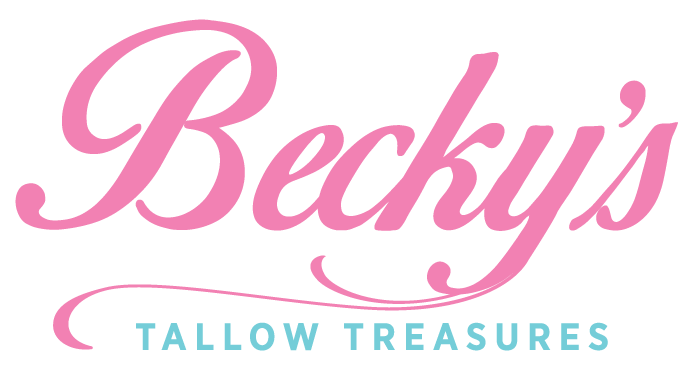What do apples, lye, and a caldron all have in common? I'll give you a hint: it's not the evil queen in Snow White.
And it's not that they are all used to produce poison.
The truth is, they all can be food grade quality.
But, wait a second, isn't lye poisonous? Can't I lose an eye from that stuff?
Well, technically, yes -- you can lose your sight, your hair, and your skin...
Permanently.
However, it's not actually poisonous, just highly corrosive.
It's a sure fact that cultures around the world use lye in the preparation of certain dishes. At very diluted ratios, lye makes delicious pretzels, cures olive, and cooks eggs and fish. Despite the wonderful cuisine that has developed from using lye in the kitchen, I know I wouldn't feel comfortable if I saw the local chef picking up drain cleaner at the hardware store for tonight's dinner. While the drain cleaner at the hardware store also claims to be 100% lye, it lost the award for being "food-grade."
Food Grade Lye Is Pure
Pure lye is by itself always food grade. When a manufacturer sells certified food grade lye, they are guaranteeing that it is not contaminated.
There are 3 main processes for producing lye:
- Mercury Cell Process
- Diaphragm Cell Process
- Membrane Cell Process
The first two processes raise concerns of trace contamination with mercury and asbestos; however, the third process produces the highest quality of lye with the least amount of energy consumption.
The risk of contamination doesn't stop there. A chemistry plant will make a lot of different chemicals using the same equipment. Just like how chocolate bars "may contain traces of nuts" and rice "may contain traces of gluten," lye may pick up traces of other heavy metals like lead.
Food Grade Lye Is Accurate
Knowing my lye is 100% pure, uncontaminated lye means that 5lbs of lye equals 5lbs of lye. Tech grade lye (drain cleaner) could range from anywhere between 90%-97% purity. My 5lbs of contaminated lye could really be only 4.8lbs, 4.65lbs, or even 4.5lbs of actual lye.
Guessing the purity of lye leads to calculation errors -- granted, in your favor. Less lye means less oils are turning into soap resulting in more oils being left over to moisturize your skin, so it's not like you're going to wash your skin right down the drain. However, why wash in a bathtub full of mercury, asbestos, or even lead when you don't have to?
OK, I exaggerated a bit there -- it wouldn't be a bathtub full, just trace amounts. But still.
Becky's Tallow Treasures uses lye that is certified food grade and certified kosher
Would you put a junk-yard engine in a brand, new Ferrari?
No. And, I wouldn't either.
We're not going to stop at the
highest quality, organic oils we can find; we're also going to seek out the highest quality lye on the market as well.
Thanks for reading!
Related Posts

Last month, I wrote about the deceptive marketing terms "fragrance free" and "all natural" as they're applied to bea
Read More

You may have noticed products containing activated charcoal popping up on shelves more often these days. Maybe you're wo
Read More

Why can't labeling be straightforward? It's such a common question and one that really should have a simple solution: If
Read More





https://sites.google.com/view/movers-riyadh/
https://sites.google.com/view/movers-riyadh/movers-mecca
https://sites.google.com/view/movers-riyadh/home
https://sites.google.com/view/movers-riyadh/movers-jedaah-elhamdniah
https://sites.google.com/view/movers-riyadh/movers-yanbu
https://sites.google.com/view/movers-riyadh/movers-najran
https://sites.google.com/view/movers-riyadh/movers-Jizan
https://sites.google.com/view/movers-riyadh/jazan
https://sites.google.com/view/movers-riyadh/taif
https://sites.google.com/view/movers-riyadh/moversjeddah
https://sites.google.com/view/movers-riyadh/movers-abha
https://sites.google.com/view/movers-riyadh/movers-elahsa
https://sites.google.com/view/movers-riyadh/movers-elkhobar
https://sites.google.com/view/movers-riyadh/movers-elkharj
https://sites.google.com/view/movers-riyadh/movers-elmadina-elmnowara
https://sites.google.com/view/movers-riyadh/movers-eljubail
https://sites.google.com/view/movers-riyadh/movers-elqassim
https://sites.google.com/view/movers-riyadh/movers-hafrelbatin
https://sites.google.com/view/movers-riyadh/movers-elbaha
https://sites.google.com/view/movers-riyadh/movers-jeddah
https://sites.google.com/view/movers-riyadh/movers-dammam
https://sites.google.com/view/movers-riyadh/movers-taif
https://sites.google.com/view/movers-riyadh/movers-burydah
https://sites.google.com/view/movers-riyadh/movers-tabuk
https://sites.google.com/view/movers-riyadh/movers-hail
https://sites.google.com/view/movers-riyadh/movers-khamis-mushait
https://sites.google.com/view/movers-riyadh/movers-rabigh
https://sites.google.com/view/movers-riyadh/madina
https://sites.google.com/view/movers-riyadh/mecca
https://sites.google.com/view/movers-riyadh/dammam
https://sites.google.com/view/movers-riyadh/jeddah
https://sites.google.com/view/movers-riyadh/ahsa
https://sites.google.com/view/movers-riyadh/cleaning-mecca